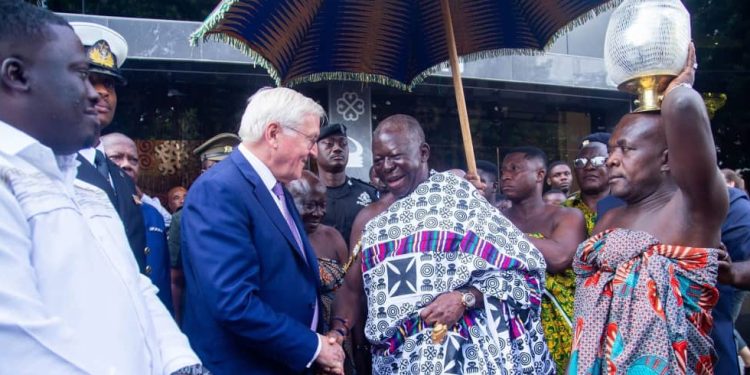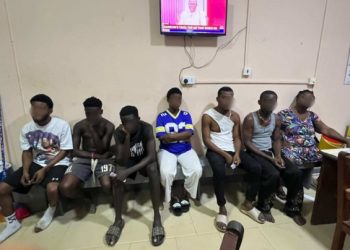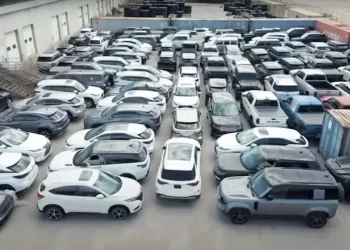The President of the Federal Republic of Germany, Frank-Walter Steinmeier, on Tuesday paid a historic courtesy call on the Asantehene, Otumfuo Osei Tutu II, at the Manhyia Palace in Kumasi, in what is described as the first visit of a German head of state to the traditional seat of the Asante Kingdom.
The visit formed part of President Steinmeier’s official state engagements in Ghana and was aimed at deepening bilateral relations and exploring new avenues for cooperation between Germany and Asanteman.
Sources at the Palace described the meeting as warm and highly productive.
Though held behind closed doors, discussions reportedly focused on investment opportunities, youth employment, and development partnerships designed to advance the socio-economic transformation of Asanteman.
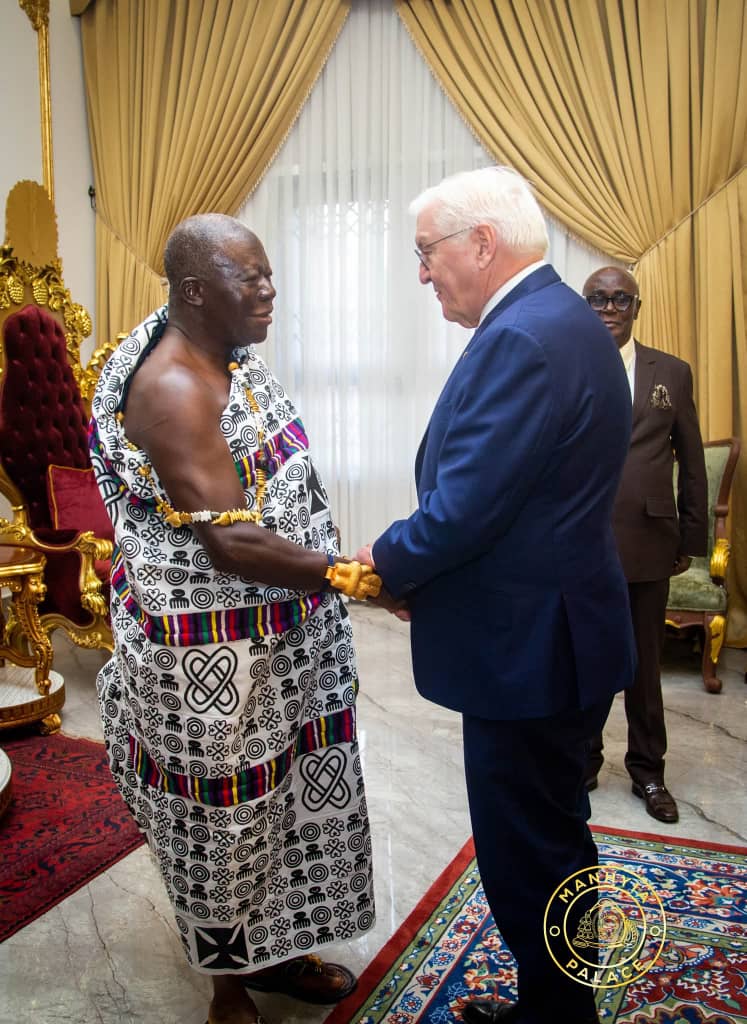
The two leaders are said to have exchanged ideas on how to enhance collaboration in areas such as education, culture, and business — building on the long-standing diplomatic friendship between Ghana and Germany.
Symbolic exchange of gifts
As part of the visit, President Steinmeier presented the Asantehene with a golf bag, a gesture symbolising goodwill, respect, and shared interests between the two leaders.
In return, Otumfuo Osei Tutu II gifted the German President a beautifully carved royal stool, adorned with the emblem of Asanteman — a powerful symbol of unity, friendship, and mutual respect.
He also cut sod for the construction of a new Centre of Excellence in Green Energy Technology at the Kumasi Technical Institute (KTI).
Accompanied by Minister for Education Haruna Iddrisu and the Ashanti Regional Minister, Dr. Frank Amoakohene, the German President also inspected innovative student-led technological projects as part of his visit to the school.
The €5.6 million facility, supported by the government of Germany, is expected to advance education, research, and sustainable energy innovation in Ghana.
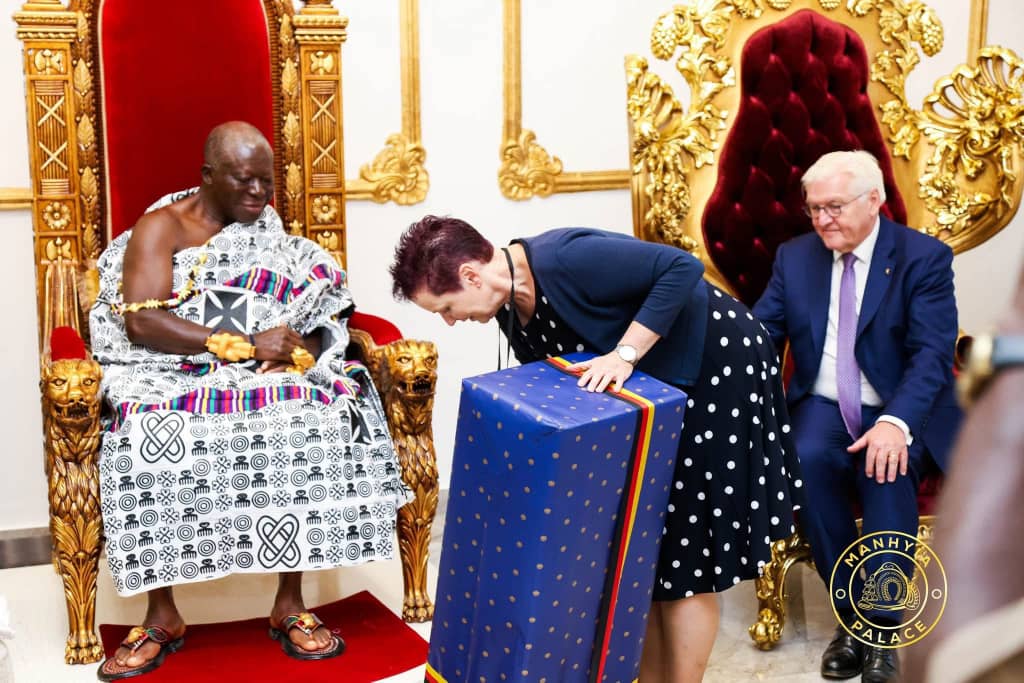
The project also reflects Germany’s commitment to deepening cooperation with Ghana in the areas of skills development, technical education, and environmental sustainability.
The Regional Minister described the initiative as “a transformative partnership that will position Ghana as a hub for green technology and industrial innovation in West Africa.”
He noted that the Centre of Excellence would not only enhance the training of young people in renewable energy technologies but also support research and industrial application in line with Ghana’s climate and sustainability goals.
“This collaboration demonstrates the growing strength of Ghana–Germany relations and our shared commitment to skills development, environmental sustainability, and industrial innovation,” he said.
He expressed appreciation to Ghana’s President John Dramani Mahama for his “transparent and accountable leadership, which continues to attract meaningful international partnerships and investments.”
Dr. Amoakohene also extended gratitude to President Steinmeier and the government of Germany for their unwavering support and friendship, emphasising that such collaborations were critical to building a resilient, knowledge-driven economy capable of meeting the challenges of the future.
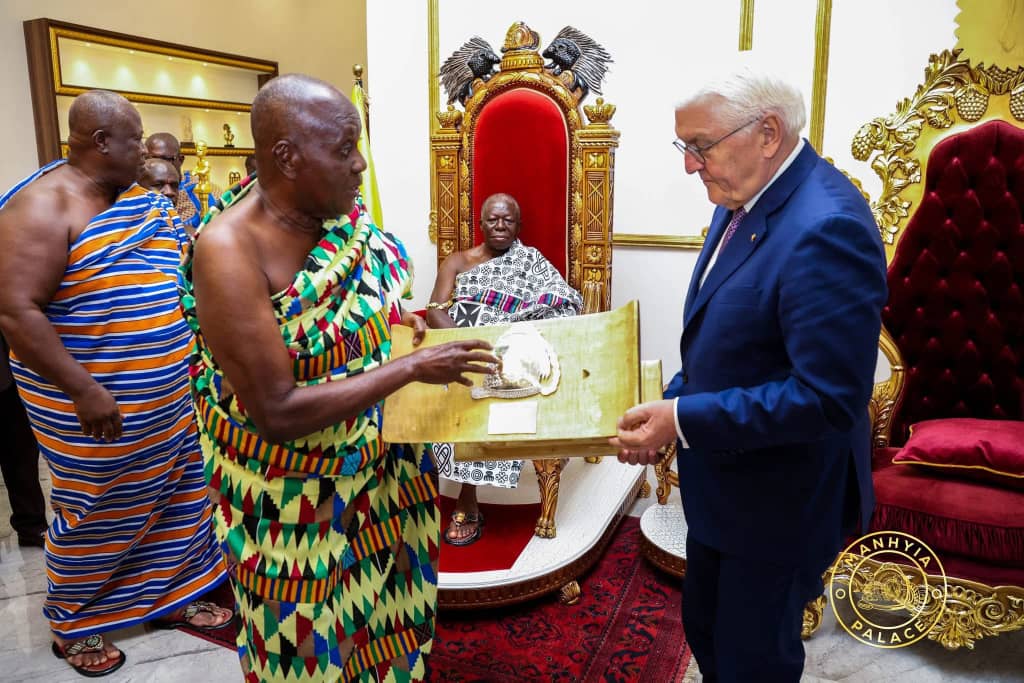
The visit formed part of President Steinmeier’s official tour to strengthen bilateral ties and explore opportunities for cooperation in education, green technology, and sustainable development between Germany and Ghana.
The Kumasi Technical Institute (KTI) was established in September 1976 by the government of Ghana in collaboration with the Canadian International Development Agency (CIDA), as a co-educational second-cycle technical institution.
Among the courses offered in the school are architectural drafting, automobile engineering, building construction technology, fashion design and technology, welding and fabrication and computer systems.

